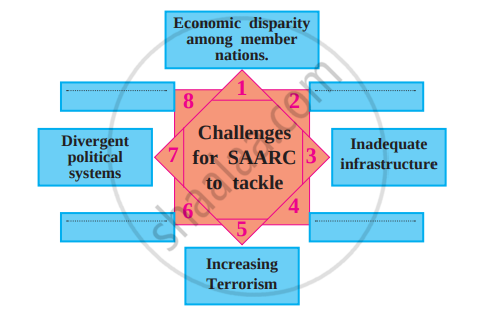Topics
Renaissance in Europe and Development of Science
European Colonialism
India and European Colonialism
Colonialism and the Marathas
India: Social and Religious Reforms
Indian Struggle Against Colonialism
- Struggle before 1857
- The Freedom Struggle of 1857
- Background of Founding the Indian National Congress
- Foundation of the Indian National Congress
- 'Moderates' and 'Extremists'
- Armed Revolutionaries in India
- Mahatma Gandhi: Non-violent Resistance Movement
- Indian National Army (Azad Hind Sena)
- 'Quit India' Movement of 1942
Decolonisation to Political Integration of India
World Wars and India
World : Decolonisation
Cold War
India Transformed - Part 1
India Transformed - Part 2
Notes
Commonwealth:
A voluntary international organisation of the countries which were once part of the British Empire and now are sovereign states is known as ‘British Commonwealth’ or simply ‘Commonwealth of Nations’. The idea behind establishing Commonwealth was to being the Governors and administrators together who had worked in the erstwhile colonies of the British empire. The objective was to achieve coherence in the political and administrative machinery by the exchange of the experience and ideas of these officers.
In 1917, Canada, Australia, South Africa, and New Zealand were given autonomy as integral states of the British Empire. In 1931, England declared a policy of granting autonomy to all its colonies, one by one. The British Parliament passed a statute known as ‘Statute of Westminster’. This statute approved the formation of the Commonwealth. As the tradition would have it, the British Queen or King is installed at the head of this organisation. The secretariat of the Commonwealth was established in London. Voluntary co-operation is the fundamental principle of the Commonwealth.
After the Second World War, the British colonies in Asia and Africa became independent. The commonwealth deserves credit for it to some extent. The opposition to British rule in the colonies and the altered international scenario made the disintegration of the British Empire inevitable. The establishment of the Commonwealth proved instrumental in giving momentum to anti-colonial movements in the colonies. Besides this, the ‘Commonwealth’ held to check the resentment with regard to granting freedom to the colonies that prevailed in some social strata in England. India’s decision to remain in the Commonwealth even after its independence added to the nullification of that resentment.
Commonwealth and India:
In 1948, in the Congress Session at Jaipur in Rajasthan, Pandit Nehru took the decision of joining ‘Commonwealth’. India became a member of the Commonwealth as an equal and sovereign state. The factors leading to this decision were in the situation that prevailed then. At that time England was the major supplier of arms and other defense material to India. England had granted the same facilities to India with regards to foreign exchange. Indian exported goods were partially free from the customs duty. More importantly, India had an open platform at Commonwealth to counter the malpropaganda by Pakistan against India. By considering all these things India became a member of the Commonwealth.
Apart from this India has always been at the forefront of the Commonwealth Games. The sports competitions modeled after Olympics competitions used to be held for amateur sportsmen in the British colonies under the name, ‘British Empire Games’. The idea of such games was introduced by Reverend Astley Cooper. Since 1950, these competitions came to be called as ‘Commonwealth Games’. Commonwealth Games were started at ‘Crystal palace’ to mark the coronation ceremony of King George V.
The Commonwealth Games of 1986 were of special significance. Thirty-two countries boycotted the games. These countries demanded that South Africa should change its racist policies. However, the United Kingdom did not pay any heed to this demand. Hence, Mr. Rajiv Gandhi, India’s Prime Minister declared a boycott. Now, in the 21st century, India has recorded a laudable performance in the Commonwealth Games.

